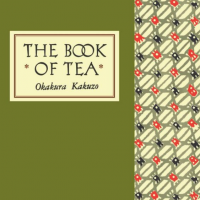To those unfamiliar with his name, Okakura Kakuzo was a pivotal figure in trying to make sense out of the clash between Western innovation in Japan and Oriental tradition. Self-exiled from the emerging modernism of the Meiji Era (1868-1912), Okakura traveled to India, China, Europe and, not without a degree of irony, found his most receptive audience in America, where he was appointed — some would say "anointed" — curator of oriental art at the Boston Museum.
The Book of Tea, by Okakura Kakuzo
160 pages
Tuttle, Nonfiction.
"The Book of Tea" was written soon after his arrival in America. Penned in English long before it was translated into Japanese, the author tested out his text at tea parties organized by Isabella Stewart Gardner, an influential social figure among Boston's cultural elite. The subsequent work, transcending the narrow confines of its title, presents a unified concept of life, art and nature. Along the way exploring topics related to tea appreciation, including Zen, flower arranging and Taoism. An early cultural activist, Okakura's mission was to preserve Japanese art and aesthetic practices from an extinction that seemed imminent.
The author predicted that Western readers would see in the tea ceremony "another instance of the 1,001 oddities which constitute the quaintness and childishness of the East," but this little book, still in print today, has done rather better than Okakura expected.
Read archived reviews of Japanese classics at jtimes.jp/essential.

















With your current subscription plan you can comment on stories. However, before writing your first comment, please create a display name in the Profile section of your subscriber account page.